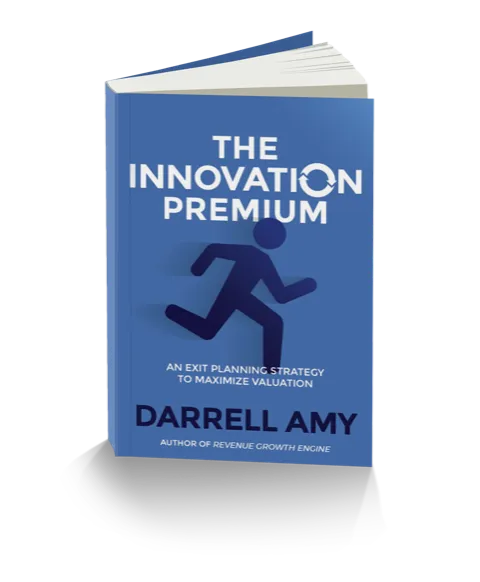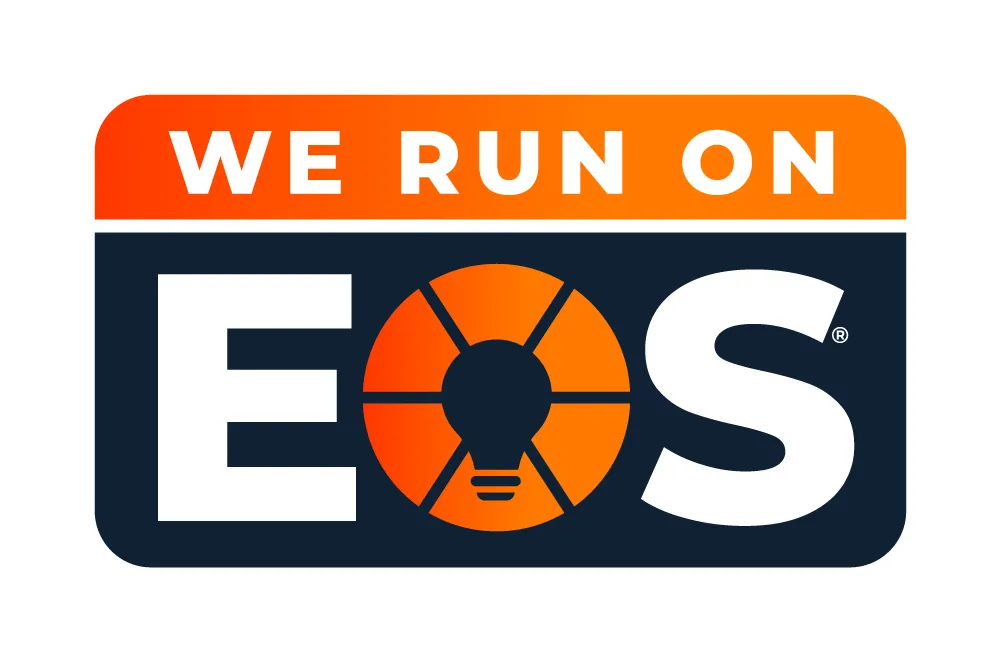THE VALUE CREATION BLOG

Four Ways Innovation Increases Business Valuation
Whether you want to maximize the multiple on your company as you prepare for a great exit or simply want to increase the profitability of your business, innovation may be the missing piece. In this article, we will explore four ways that innovation increases valuation.
1. Reduces Fear of What Happens After the Visionary Founder Leaves
Buyers discount valuation based on perceived risk. One of the biggest perceived risks is that when the founder leaves, their entrepreneurial spirit will be gone. The fear is that this will lead to a slowdown in growth.
Implementing structure and systems for innovation replaces the buyer’s perceived risk with a perceived benefit. The founder's entrepreneurial spirit can be amplified by a council of innovative employees working together to innovate a better future. Additionally, the buyer may see the innovative aspects of the company as a net gain to other businesses in their portfolio.
2. Accelerates Revenue and Profit Growth
The net present value of a company is based on the expected stream of future cash flows. One company drives linear growth by combining operational excellence and hustle. A smarter company creates exponential growth by adding in a steady stream of innovation. The second company should be able to justify a higher multiple.
Strategic innovation accelerates revenue and profit growth in four areas:
Increased revenue from new/enhanced products and services
Increased growth from new go-to-market strategies
Increased client retention with improved client satisfaction
Increased profit with streamlined systems and processes
Each of these areas is an enhancement to the business. Think about it like selling a home. Innovation in these four areas would be like additional rooms that increase the appraised value of the property.
3. Creates a Path for Future Leaders
Buyers fear that when the founder leaves top talent will go out the door with them. This potential drain of tribal knowledge drags down the value of the business.
Identifying and engaging employees with gifts of innovation helps them become more personally engaged in the business. In the process of innovating, they master the key drivers of revenue and profit growth. With this level of engagement, they are more likely to stay around after the sale of the business. Plus, this gives the buyer confidence that there is a pipeline of future leaders.
4. Gives You A Story
Every buyer tells themselves (and their friends) a story. One version of the story could go like this: “Yeah, I found this business. It’s doing OK but the buyer really wants to retire. With some work, I can get it profitable. I got a great deal!”
Another version of the story could be: “I found this amazing business. They are on a growth trajectory. Not only do they have a pipeline of deals, they have a pipeline of innovation. They have a strategic innovation team that is always bringing new ideas to the table. I love the energy. I bet this will help my other businesses. I got a great deal!”
The story the buyer tells themself about your company determines their willingness to invest.
Estimating The Value of Innovation
To use some round numbers, let’s say you have a business with $2M in EBITDA. While multiples in every industry are different, let’s say the range of multiples is 4 on the low end and 6 on the top end.
4X Multiple: $8M valuation
5X Multiple: $10M valuation
6X Multiple: $12M valuation
A middle-of-the-road valuation in this case would be $10M. A top valuation could be an increase of $2M–for the exact same business.
Do this math for your industry. What is the range of multiples? (Don’t know? Look for a Certified Exit Planning Advisor in your area. They can help with advice.)
What To Do Now
Smart business owners work to increase the sellable value of their business long before the date of the sale. Common strategies like improving the accounting and implementing a business operating system are becoming table stakes. While you should work to improve each of these areas you can maximize your multiple by also adding innovation.

Curious about how this could work for your business? Get your copy of the Visionary’s Guide To Unleashing Strategic Innovation and schedule a time to discover how you could implement a Strategic Innovation Council to maximize the value of your business and avoid leaving money on the table.
FREE BUSINESS VALUATION
What is Your Business Worth?
You can Discover the Value of Your Business in Less than 20 Minutes!
Join 70,000 business owners and get your score on the 8 Factors That Drive Your Company’s Value, a comprehensive analysis of your score and a detailed action plan for how to improve your score on each.


PREORDER YOUR FREE COPY NOW
Discover How to Create a Premium Valuation for Your Business
Learn how to command a premium multiple on your business
Find out why buyers discount their offers
See how innovation can help you create a premium valuation
Estimate your company's innovation index



